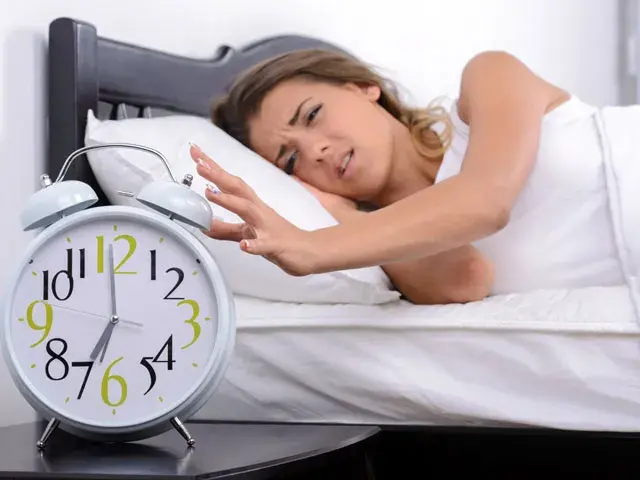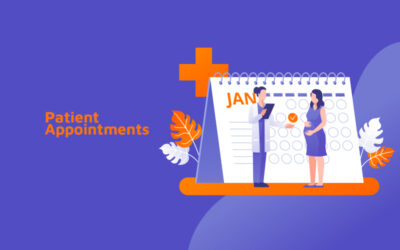Sleep disorder is a condition that impairs sleep and prevents you from getting sound sleep at night. It also causes daytime sleepiness as well as other symptoms. According to the American Sleep Association (ASA), 50-70 million US citizens have sleep disorder. This is not a small number. This statistic shows the importance of treating this condition. For effective patient care and treatment, the physician should submit claim documentation for reimbursement. The person who drafts claim submission documents for sleep disorder must be very careful while drafting as there are different types of sleep disorder and each type has a distinctive medical code. Thus, for this purpose, they can rely on experienced Allergy and Sleep Medicine Medical Coding providers for drafting accurate claim submission documentation.
As mentioned above, sleep disorders disrupt the proper sleep condition of a man. This condition might pave the way for several other conditions like hormone imbalance, mood swings, uneven weight management, stress and so on. When a patient presents with symptoms like daytime sleepiness, irregular breathing or increased movement during sleeping, then it is a matter of concern. The physician needs to determine which type of disorder the patient has, so that effective treatment can be provided.
There are mainly five types of sleep disorder. While drafting reimbursement documents, the physician should clearly mention which type of sleep disorder the patient has as well as the condition of the patient as each type of sleep disorder has separate ICD-10 codes. Let’s check five types of sleep disorders and their corresponding ICD-10 codes.
Types of Sleep Disorders and their ICD-10 Codes
1) Insomnia
This is defined as difficulty in falling asleep or staying awake during night time even if the person feels very tired and sleepy. It is classified into two types such as acute and chronic. Acute insomnia is a short-term sleep condition that happens often due to international traveling or some traumatic experience. On the other hand, chronic insomnia is a long-term condition that would last for a month or more. Usage of certain medicines, excessive intake of alcohol, use of nicotine, stress, mental problems and so on pave the way for this condition. The ICD-10 codes for insomnia are as follows:
- G47 Sleep Disorders
- G47.0 Insomnia
- G47.00 …… unspecified
- G47.00 …… unspecified
- G47.00 …… unspecified
- G47.0 Insomnia
2) Hypersomnia
Unlike insomnia, hypersomnia creates a feeling of extreme daytime sleepiness despite getting adequate sleep. Hypersomnia patients would fall asleep several times during day time. It may adversely affect their work life as well as social life. It is estimated that hypersomnia is found more in women than in men. Constant sleeping, difficulty waking up in the morning, anxiety, restlessness, headache, hallucination and so on would be the signs of hypersomnia. The ICD-10 codes for hypersomnia include:
- G47.1 Hypersomnia
- G47.10 …… unspecified
- G47.11 Idiopathic hypersomnia with long sleep time
- G47.12 Idiopathic hypersomnia without long sleep time
- G47.13 Recurrent hypersomnia
- G47.14 …… due to medical condition
- G47.19 Other hypersomnia
3) Sleep Apnea
Sleep apnea occurs when your breathing is interrupted while sleeping. This results in sudden awakening even from deep sleep. A patient with this condition would repeatedly stop breathing while sleeping. If the physician doesn’t give proper treatment or fails to diagnose at the right time or the patient gives least care to this condition, then this would lead to more health-related issues like blood pressure and heart attack. The ICD-10 codes for sleep apnea are as follows:
- G47.3 Sleep apnea
- G47.30 …… unspecified
- G47.31 Primary central sleep apnea
- G47.32 High altitude periodic breathing
- G47.33 Obstructive sleep apnea (adult) (pediatric)
- G47.34 Idiopathic sleep related nonobstructive alveolar hypoventilation
- G47.35 Congenital central alveolar hypoventilation syndrome
- G47.36 Sleep related hypoventilation in conditions classified elsewhere
- G47.37 Central sleep apnea in conditions classified elsewhere
- G47.39 Other sleep apnea
4) Narcolepsy
This condition is referred to as excessive and uncontrollable daytime sleepiness and drowsiness. People having this condition might have heart attacks while sleeping. They may also find it difficult to stay awake even during day time. The ICD-10 codes for narcolepsy are as follows:
- G47.4 Narcolepsy and cataplexy
- G47.41 Narcolepsy
- G47.419 …… without cataplexy
- Narcolepsy in conditions classified elsewhere
- G47.421 …… with cataplexy
- G47.429 …… without cataplexy
- G47.41 Narcolepsy
5) Parasomnia
This involves unusual and undesirable physical events or experiences that interrupt sleeping. It usually occurs before or during sleeping. If the patient has parasomnia, then he/she might engage in abnormal movements, talks, expressing emotions and so on. There are two stages of parasomnia. That includes non-rapid eye movement sleep and rapid eye movement sleep. The ICD-10 codes for parasomnia include:
- G47.5 Parasomnia
- G47.50 …… unspecified
- G47.51 Confusional arousals
- G47.52 REM sleep behavior disorder
- G47.53 Recurrent isolated sleep paralysis
- G47.54 …… in conditions classified elsewhere
- G47.59 Other parasomnia
Sleep disorder is a common condition and due to various reasons, the number of people affected by this condition has been increasing considerably. The physician should ensure that they are giving the right treatment at the right time. Physicians can join hands with an experienced medical billing and coding company for timely claim submission and maximum reimbursement.




